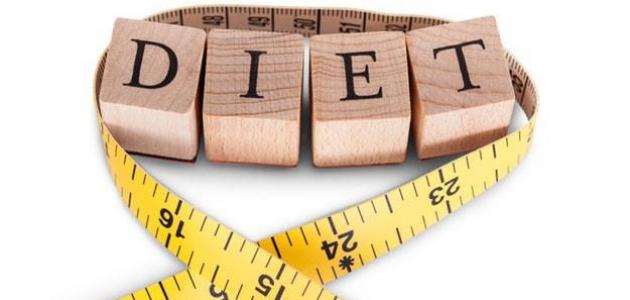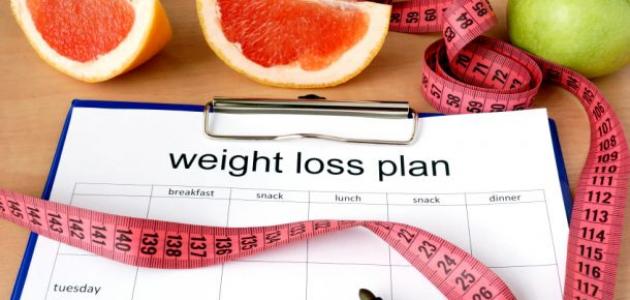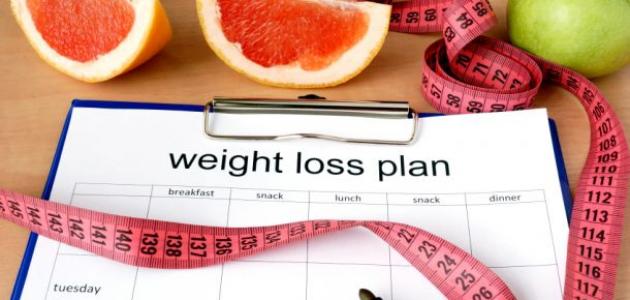dieting
The diet or healthy diet aims to obtain a sufficient amount of nutritious, safe, and varied foods daily, as the food eaten greatly affects the health of the body and quality of life, but the diversity of popular diets and their trends may cause some confusion, despite the ease of choosing and eating. Healthy foods, so it is recommended to stay away from complex health systems that are limited to harsh goals and restrictions, such as unrealistic thinness and deprivation of desired or beloved foods, and to stay away from exhausting and conflicting advice about nutrition and diets, and to adopt flexible systems that make a person feel comfortable and improve health and mood.
How do I start dieting
The word diet is usually associated with weight loss, but there are many reasons for following healthy diets. Those who suffer from an unhealthy weight need special care to improve their eating and exercise habits. Athletes are also interested in healthy diets to reach the best physical condition, in addition to feeling comfortable and satisfied. Many people lose weight, and below are some tips on how to start a healthy diet to lose weight:
- Consult a doctor before starting the diet: The doctor may provide some basic information that can help to lose weight better, and may refer the patient to a nutritionist, or a specialized health care provider who may help in some cases, such as a diabetes consultant, which contributes to reaching the weight that the person aspires to reach in a way that security.
- Setting goals: Setting long- and short-term goals is one of the most important steps to starting a healthy weight loss diet. To build confidence and continuity when facing difficulties, it is recommended to initially set long-term goals, then divide them into small weekly goals as a starting point, and be careful to choose logical goals that can be achieved for weight loss, provided that the amount of weight loss ranges between 0.5 - 1 kilogram per week. And persistence in these goals despite the slowness in achieving results and the long period to achieve the goal. This is to learn stable healthy eating habits for the rest of life; It was noted that losing a small percentage of weight; Or the equivalent of 5% to 10% of body weight, it helps improve health in general, and reduce blood pressure, blood sugar levels, and cholesterol in particular.
- Make sure you are ready to lose weight: It is important to determine the reason for wanting to lose weight; In order to adhere to and succeed with the followed plan, and before starting to follow the diet plan to lose weight, the person must be sure that he is ready for it, and that he has the motivation or motivation to follow this plan, in addition to focusing on losing weight before starting the diet, without other distractions, and it is important to choose to commit to losing weight. Because of the desire of the person himself, and not because of pressure from another person.
- Start writing a food diary: Keeping a food diary is a good habit, to know the eating habits before starting the diet, and to know the amount of calories consumed daily, and thus determine the starting point for achieving the goal of losing weight. It may also give the nutritionist a good idea about the bad eating habits that he follows or thinks are healthy. This is not the case, in addition to the ability to continue to achieve the goal and face difficulties and challenges.
- Change gradually: Despite the difficulty of change, the best way to change the diet is to start by making small, gradual changes. It is preferable to make one change every week, to help get used to the new eating behavior, to obtain healthy eating habits that may last a lifetime. Examples of these changes include: Start stocking your cupboards and refrigerator with healthy foods, and prepare healthy meals at home. These meals do not have to be different from the foods that a person usually eats, but rather it is necessary to learn how to prepare these foods in a healthy way, and it is also necessary to know the sufficient quantity of them.
- Stay away from misleading diets: Many people follow some unhealthy and misleading diets, because they think that they may improve their health conditions, make them feel better, or improve their appearance, and promise them to get the best results in a short time and in easy ways. This may be due to the lower intake of calories than usual, by following the requirements Strict restrictions on food choices, or include repeatedly eating the same foods, but these diets give an effect for a short period of time, which may lead to gaining weight again and returning to the previous weight after finishing the diet, and most of the weight lost may be the result of losing weight. Water or muscle instead of losing fat, because it did not correct the basic eating habits that led to weight gain in the first place.
- Follow a proper diet: In reality; There is no single diet that suits all people; Choosing the appropriate diet for each person varies according to what the body requires to lose weight, and this depends on age, gender, height, activity level, and the amount of weight loss. It is important to determine the person’s budget, lifestyle restrictions, work, culture, and what his family eats; To facilitate adherence and follow-up to the diet, it is therefore preferable to consult a nutritionist to develop a personal diet that suits each person based on his or her circumstances. You can also learn to determine the number of calories required for weight loss, as the number of calories that must be reduced daily varies according to the specific goal of weight loss.
- Do not punish yourself if you stay away from the health system: Strict thinking about achieving a diet and lifestyle is one of the main obstacles in adhering to it. Sometimes a person may be forced to eat some unhealthy foods, and this may lead him to think that his diet for that day is not beneficial, and therefore he will continue to eat unhealthy foods throughout the day. That day, and thinking this way is considered bad for the diet, so the correct thing is to continue following the healthy diet even if some of its rules are broken during the day.
- It is also worth noting that some of the added options that are not included in the nutritional plan will only make a small difference in the long run when balanced with the healthy foods that the person continues to eat. Therefore, one must avoid blaming oneself when staying away from the diet, get rid of wrong ideas, and return. On the right track, to avoid repeating the problem again, in addition to discovering weak points and correcting them, without abandoning the diet. It is also possible to adhere to 80% of the diet rules, and reduce adherence by 20% of the rules. This means that even with a healthy diet Whoever aims to lose weight must include some favorite foods and avoid deprivation of any type of food, but rather learn the appropriate times and quantities to eat them.
How do I know if I need to lose weight?
Excess weight may cause many health problems, such as: obesity, type 2 diabetes, high blood pressure, and cardiovascular problems. It is worth noting that determining the ideal weight varies from one person to another. Depending on age, muscle fat percentage, height, gender, body fat distribution, or body shape, the Body Mass Index (in English: Body Mass Index), known as BMI for short, is one of the common tools to determine the appropriate weight for a person, depending on weight and height, according to For the following equation:
Read also:Fast-acting diet for the buttocksBMI= Weight in kilograms ÷ (height in meters)²
Read also:Best snack for dietBMI is divided into four ranges according to the National Institutes of Health, as follows:
- Underweight or thin: When the body mass index is less than 18.5.
- perfect weight: When it ranges between 18.5 -24.9.
- Overweight: When it ranges between 25 -29.9.
- Obesity: When the nutrition index exceeds 30.









